
Environmental Science-Advances
Scope & Guideline
Empowering research to tackle global challenges.
Introduction
Aims and Scopes
- Water Quality and Contamination:
Research related to the detection, removal, and treatment of contaminants in water sources, including heavy metals, organic pollutants, and emerging contaminants such as PFAS. - Sustainable Materials and Waste Management:
Studies on the use of sustainable materials, waste recycling, and innovative technologies for waste management, including bioremediation and the development of biodegradable materials. - Climate Change and Ecological Impact:
Investigations into the effects of climate change on ecosystems, biodiversity, and human health, alongside strategies for carbon capture and sustainable practices. - Technological Innovations in Environmental Science:
Development and application of advanced technologies, including machine learning, nanotechnology, and photochemical processes, to solve environmental problems. - Policy and Socioeconomic Factors:
Analysis of environmental policies, socioeconomic impacts of environmental changes, and public engagement strategies related to sustainability and conservation.
Trending and Emerging
- Machine Learning and AI in Environmental Research:
There is an increasing trend in the application of machine learning and artificial intelligence to predict environmental outcomes, optimize resource management, and enhance data analysis. - Microplastics and Emerging Contaminants:
Research on microplastics and their ecological impacts, as well as the detection and remediation of emerging contaminants, is becoming a focal point in environmental studies. - Climate Resilience and Adaptation Strategies:
The exploration of strategies to enhance ecosystem resilience and adapt to climate change impacts is gaining importance, particularly in the context of biodiversity conservation and sustainable development. - Bioengineering and Green Chemistry:
Innovative approaches in bioengineering and green chemistry are emerging, focusing on sustainable materials and processes that minimize environmental harm. - Integrated Environmental Management Systems:
There is a growing emphasis on holistic and integrated approaches to environmental management, combining ecological, economic, and social dimensions to promote sustainability.
Declining or Waning
- Traditional Pollution Monitoring:
Research focused on conventional methods of pollution monitoring, such as basic chemical analysis without advanced technologies, has decreased as more sophisticated techniques gain traction. - Single-Chemical Toxicology Studies:
Studies concentrating solely on the toxicity of individual pollutants are becoming less common, as there is a growing emphasis on understanding the impacts of complex mixtures and interactions. - Static Environmental Assessments:
Research that relies on static assessments of environmental conditions is declining in favor of dynamic and real-time monitoring approaches that provide more relevant data. - Conventional Energy Sources:
Investigations centered around fossil fuel impacts without consideration of renewable alternatives are waning, reflecting the global shift towards sustainable energy solutions.
Similar Journals
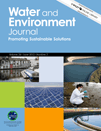
WATER AND ENVIRONMENT JOURNAL
Empowering voices in water and environmental science.WATER AND ENVIRONMENT JOURNAL is a prominent interdisciplinary journal dedicated to the latest research and advancements in the fields of water resources, environmental engineering, and pollution management. Published by WILEY, the journal has established itself as an essential resource for academics, practitioners, and policymakers since its inception in 1987. With an impressive impact factor reflecting its robust influence, it ranks in the Q2 and Q3 quartiles across multiple categories, including Water Science and Technology, Environmental Engineering, and Management, Monitoring, Policy and Law. The journal welcomes high-quality research articles, reviews, and case studies that address the critical challenges facing water and environmental sciences. As an open access publication, it provides a platform for widespread accessibility and engagement, ensuring that the knowledge generated is disseminated to a diverse audience. With a commitment to advancing understanding and solutions in water-related issues, WATER AND ENVIRONMENT JOURNAL plays a crucial role in shaping the future of environmental research and technology.

ENVIRONMENTAL SCIENCE & TECHNOLOGY
Empowering researchers to shape the future of environmental science.ENVIRONMENTAL SCIENCE & TECHNOLOGY, published by the American Chemical Society, is a premier journal dedicated to the rapid dissemination of innovative and impactful research in the fields of environmental science and technology. With an ISSN of 0013-936X and an E-ISSN of 1520-5851, this journal boasts a remarkable Q1 ranking across multiple categories including Chemistry (Miscellaneous), Environmental Chemistry, and Medicine (Miscellaneous) for 2023, reflecting its crucial role in advancing interdisciplinary approaches to pressing environmental issues. Notably, it holds prestigious Scopus rankings, being ranked #26 in General Chemistry and #10 in Environmental Chemistry, placing it in the top portions of its respective categories with unmatched visibility at the 93rd percentile. Spanning a publication history from 1967 to 2024, the journal serves as a vital resource for researchers, professionals, and students aiming to contribute to sustainable solutions and scientific advancements. By prioritizing rigor and relevance, ENVIRONMENTAL SCIENCE & TECHNOLOGY fosters academic dialogue and innovation within these crucial fields, making it an essential read for anyone invested in environmental progress.
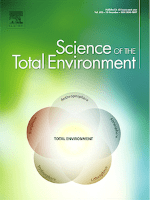
Science of The Total Environment
Connecting Science and Sustainability for a Better TomorrowScience of The Total Environment, an esteemed journal published by Elsevier, holds a significant position in the field of environmental science, encompassing critical areas such as Environmental Chemistry, Environmental Engineering, Pollution, and Waste Management and Disposal. With an impressive impact factor and ranked in the Q1 quartile across its categories for 2023, the journal is recognized for its high-quality research output and contribution to environmental sustainability. Operating from its base in the Netherlands, the journal has been a valuable resource since its inception in 1972, welcoming innovative studies that address complex environmental challenges. Its notable rankings—such as Rank #9 in both Environmental Sciences and Pollution—underscore its relevance and influence in the academic community. Although the journal currently does not provide an open access option, the robust findings and discussions presented within its pages continue to foster a deeper understanding of environmental issues. Science of The Total Environment is an essential platform for researchers, professionals, and students dedicated to advancing knowledge and solutions in the rapidly evolving field of environmental science.

Water Conservation Science and Engineering
Transforming Water Challenges into Engineering SolutionsWater Conservation Science and Engineering, published by SPRINGERNATURE, is a vital academic journal dedicated to advancing the fields of environmental engineering, ocean engineering, waste management, and water science and technology. Since its inception in 2016, the journal has quickly established itself within the academic community, achieving a commendable Q3 ranking across multiple categories in 2023. With an ISSN of 2366-3340 and an E-ISSN of 2364-5687, it is accessible to a global readership eager to explore the latest research and innovations in water conservation and sustainable practices. Although currently not open access, the journal is committed to publishing high-quality scholarly articles that provide insights into effective water management strategies, innovative engineering solutions, and the critical importance of preserving our water resources. Based in Singapore, Water Conservation Science and Engineering aims to foster interdisciplinary collaboration among researchers, professionals, and students, making it an essential resource for anyone passionate about environmental sustainability and preservation.

Carpathian Journal of Earth and Environmental Sciences
Exploring the Interplay of Geology and EnvironmentCarpathian Journal of Earth and Environmental Sciences is a distinguished academic journal dedicated to advancing the interdisciplinary field of Earth and environmental sciences. Published by the Carpathian Association for Environment and Earth Sciences, this journal plays a pivotal role in disseminating high-quality research focused on the dynamic interactions between geological processes and environmental changes. With an ISSN of 1842-4090 and an E-ISSN of 1844-489X, the journal is indexed in Scopus and holds an esteemed Q3 quartile ranking in both Earth and Planetary Sciences and Environmental Science categories as of 2023. Since its inception in 2008, the Carpathian Journal has provided an open access platform for researchers, professionals, and students to share insights, foster collaboration, and engage in critical discussions on pressing environmental issues. By continuously contributing to the body of knowledge in this field, the journal not only enhances academic discourse but also promotes sustainable environmental practices across Romania and beyond.
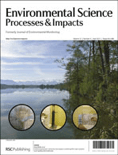
Environmental Science-Processes & Impacts
Exploring the nexus of science and environmental impact.Environmental Science-Processes & Impacts is a premier journal published by the Royal Society of Chemistry, focusing on critical research in the field of environmental science. With ISSN 2050-7887 and E-ISSN 2050-7895, this journal has established itself as an authoritative source of knowledge since its inception in 2012, maintaining a remarkable Q1 quartile ranking across significant categories such as Environmental Chemistry, Management, Monitoring, Policy and Law, Medicine, and Public Health for the year 2023. It stands as an essential resource for professionals, researchers, and students, aimed at advancing scientific understanding and solutions to pressing environmental issues. With impressive ranks in Scopus, including #45 in Public Health and #27 in Environmental Chemistry, the journal provides a platform for impactful research and interdisciplinary collaboration, emphasizing open access to foster the dissemination of knowledge globally. Join a community committed to exploring the interconnectedness of environmental processes and their implications for society by contributing to or learning from cutting-edge studies published in this esteemed journal.
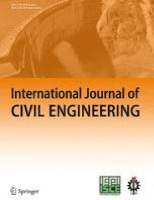
International Journal of Civil Engineering
Advancing Sustainable Solutions in Civil EngineeringThe International Journal of Civil Engineering, published by Springer International Publishing AG, is a premier platform dedicated to advancing the field of civil engineering. With a notable impact factor and a strong reputation reflected in its Q2 quartile rankings in both Civil and Structural Engineering as well as Geotechnical Engineering and Engineering Geology, this journal facilitates the dissemination of high-quality research from 2009 through 2024. Researchers and professionals can access cutting-edge studies and innovative practices that address contemporary challenges in civil engineering, such as sustainable infrastructure development, environmental impacts, and advanced material technologies. Situated in Switzerland, the International Journal of Civil Engineering emphasizes the critical interplay between theory and application, making it an essential resource for students, academics, and industry leaders seeking to stay at the forefront of their disciplines.
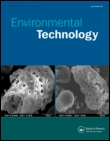
ENVIRONMENTAL TECHNOLOGY
Innovating Environmental Solutions Through Cutting-Edge ResearchENVIRONMENTAL TECHNOLOGY, published by Taylor & Francis Ltd, is a prominent journal that serves as a crucial platform for disseminating pioneering research in the multifaceted fields of Environmental Science, Water Science and Technology, and Waste Management. With an impressive record spanning over three decades from 1990 to 2024, the journal holds significant rankings in various categories, including Q3 in Environmental Chemistry and Q2 in both Medicine (miscellaneous) and Water Science and Technology for 2023. Its Scopus rankings further position it within the top tiers of Environmental Science disciplines, reflecting its influence and relevance, particularly as it pertains to pressing global environmental challenges. While the journal does not offer an open access option, it remains dedicated to advancing knowledge and promoting innovative solutions among researchers, professionals, and students engaged in environmental studies. As it continues to attract high-quality submissions, ENVIRONMENTAL TECHNOLOGY plays a vital role in shaping future research and practices aimed at sustainable environmental management.
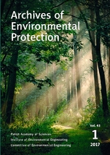
Archives of Environmental Protection
Shaping Sustainable Practices through Rigorous ResearchArchives of Environmental Protection, published by the Polish Academy of Sciences, is a pivotal journal in the field of Environmental Science. With an ISSN of 2083-4772 and E-ISSN of 2083-4810, this journal serves as a critical platform for disseminating innovative research and comprehensive reviews that address the complexities surrounding environmental issues. As of 2023, it holds a respectable Q3 ranking in Environmental Science, reflecting its relevance and contribution to the academic community, indicated by a Scopus rank of 124 out of 233 in the General Environmental Science category. Although it operates without Open Access, the journal's consistent publication from 2007 to 2024 emphasizes its commitment to advancing knowledge in diverse areas of environmental protection. Researchers, professionals, and students are encouraged to engage deeply with the wealth of insights offered through the rigorous peer-reviewed articles presented in this journal, which strive to foster sustainable practices and environmental stewardship.
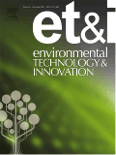
Environmental Technology & Innovation
Advancing Sustainable Solutions for a Greener TomorrowEnvironmental Technology & Innovation is a leading academic journal published by Elsevier, focusing on groundbreaking research and advancements in the fields of Environmental Science, Plant Science, and Soil Science. Since its inception in 2014, this prestigious journal has established itself in the top Q1 quartiles of its categories, reflecting its commitment to publishing high-quality, impactful research. As evidenced by its impressive Scopus ranks, including a rank of #14/516 for Plant Science and #5/159 for Soil Science, it serves as a vital resource for scholars, researchers, and professionals aiming to advance their understanding and innovation in environmental technologies. Although it operates under a subscription model, the journal provides significant insights and access options, making it an essential addition to any researcher's library. With its emphasis on sustainability and technological advancements, Environmental Technology & Innovation remains at the forefront of addressing global environmental challenges and fostering innovative solutions.